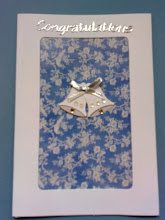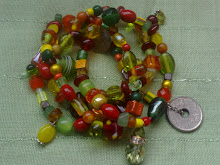It can be annoying, but I love these questions. Often they show a real ignorance in people and sometimes a lack of manners – there are ways of asking personal questions about another person without offending them or making them feel uneasy (“What is that one your head?” or as one man put it “Do you have to wear that to make yourself unattractive” are not the most tactfully put questions).
I much prefer someone who is at least interested enough to ask those questions in comparison to people who purposefully remain ignorant and continue to dislike or hold prejudice against what they do not understand. Also it gives me the chance to engage in one my most favourite things, and the reason I think we are here – dawah. Most people who make the mistake of asking me the above questions then sit there wondering how to get me to shut up.
This week I was asked by a colleague, why I wear hijab and whether I take it off when I got home. I explained that Islam continues the tradition of the practising Christian and Jewish people whose laws also encourage their women to cover their head. She asked me what the big deal was about hair and I reminded her that in the bible it says that a woman’s hair is her crowning glory. She wanted to know if we have to cover in front of family and I explained about family, in-laws and others and the reasons why.
I tried to explain that it is not just about sexuality and men. One friend told a work colleague in a panic when asked about why she wore hijab, that it was to prevent rape. In contrast another friend (my bestest) when asked rudely by a hostile colleague (who she knew was a religious Christian) why she wore “that”, explained because as a good Muslim she loved the Virgin Lady Mary and wanted to emulate her modesty and then explained about the Muslim command for modesty (the rude lady was left gobsmacked). I explained to her that Islam gives women the freedom to engage in public life in order to serve others, but that we are commanded to ensure that relations between men and women should be characterised by purity. She was surprised when I explained about men having to dress modestly and lower their gaze. She then asked about niqab and I explained about taking purity to the next level and making choices about how you engage with the world. By this point she was ready to change the subject but looked a little less contemptuous of the whole hijab issue.
It also reminded me of a very kind colleague at my previous office who I considered to be an intelligent and fairly knowledgable man who asked me after the Jack Straw niqab affair whether women wore niqab because their husbands made them. I was amazed that he could think this, but it was a perfectly innocent, genuine question. I explained how tough a woman had to be to wear niqab and how some of them wore it even when their husbands disliked it. That most of the niqabi's I knew were either scholars or business-women, many with degrees.
I'm glad he asked. I'm glad my collegue asked yesterday. At least it gives me a chance to put my side of things and explain how hijab is nothing new but a continuation of what came before and is familiar to them.































Yes, I agree -- the questions are funny sometimes... but like you, I dont mind to explain :) Ma shaa Allah, it is a nice reminder for all of us about the example we are to others, especially non-Muslims
ReplyDeleteAssalam-alaikam,
ReplyDeleteI'd love to know what you and other sisters say, just to make my explanations a bit better.